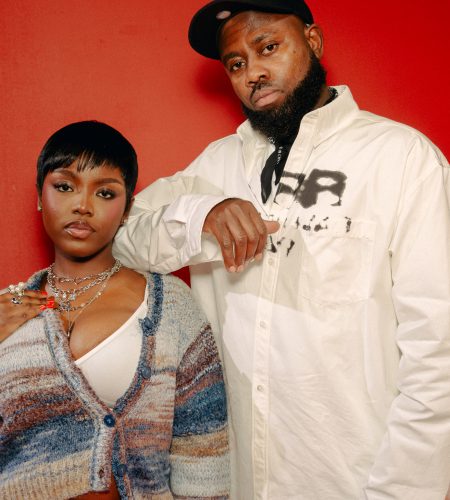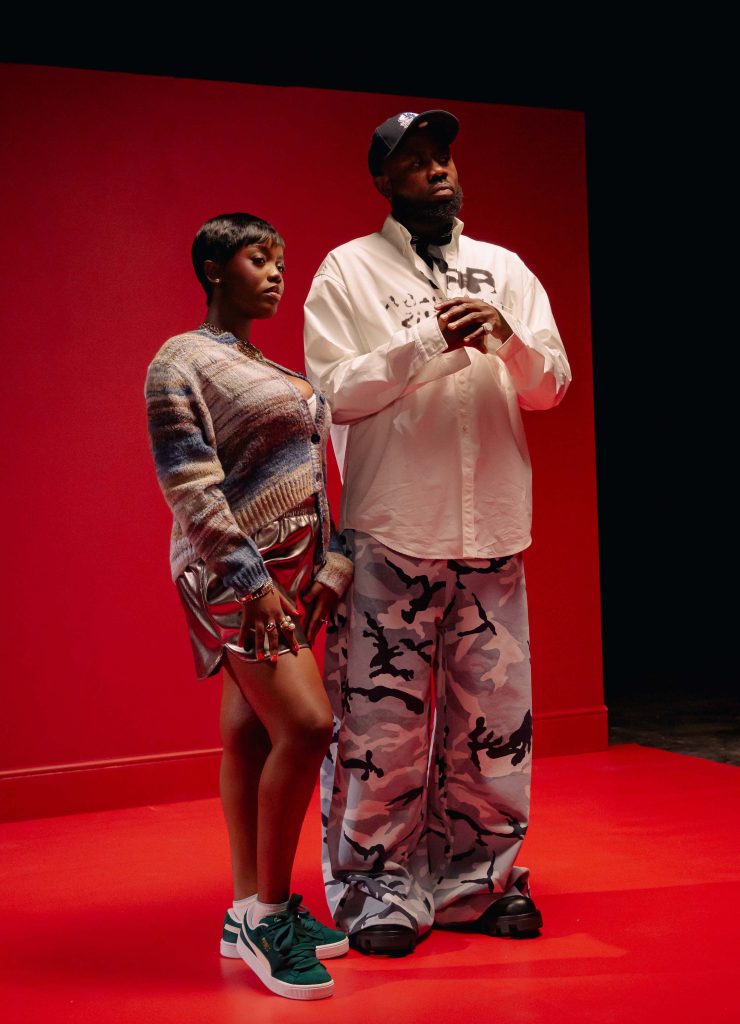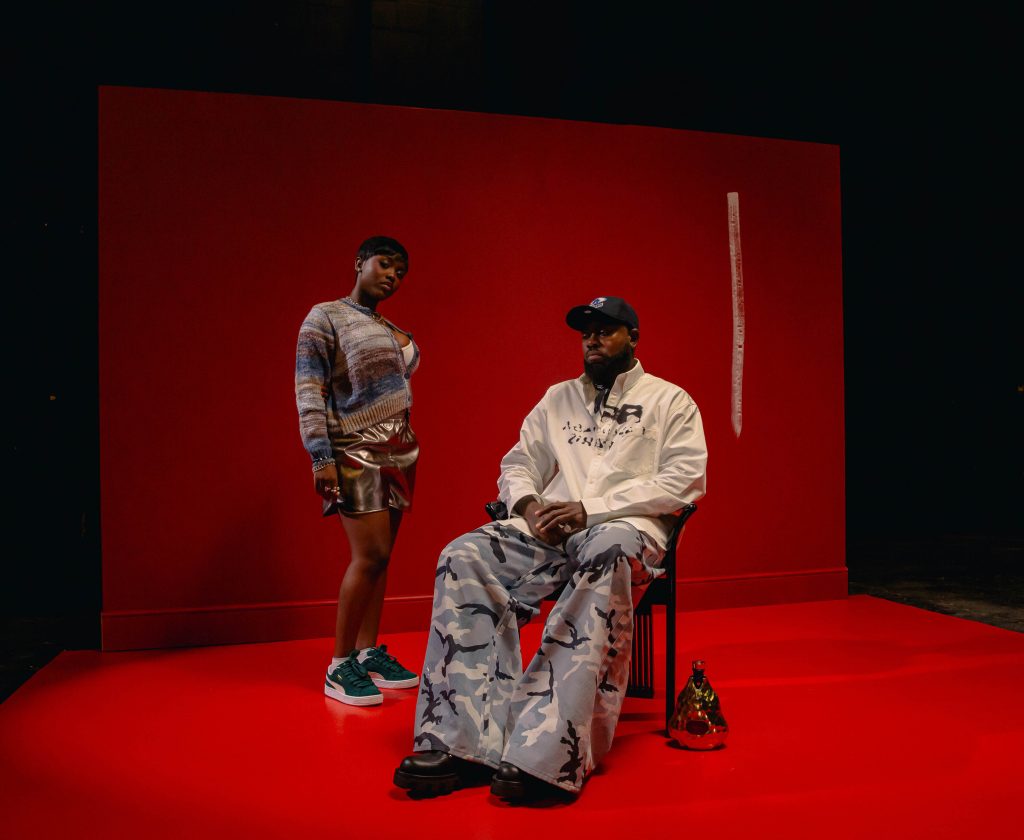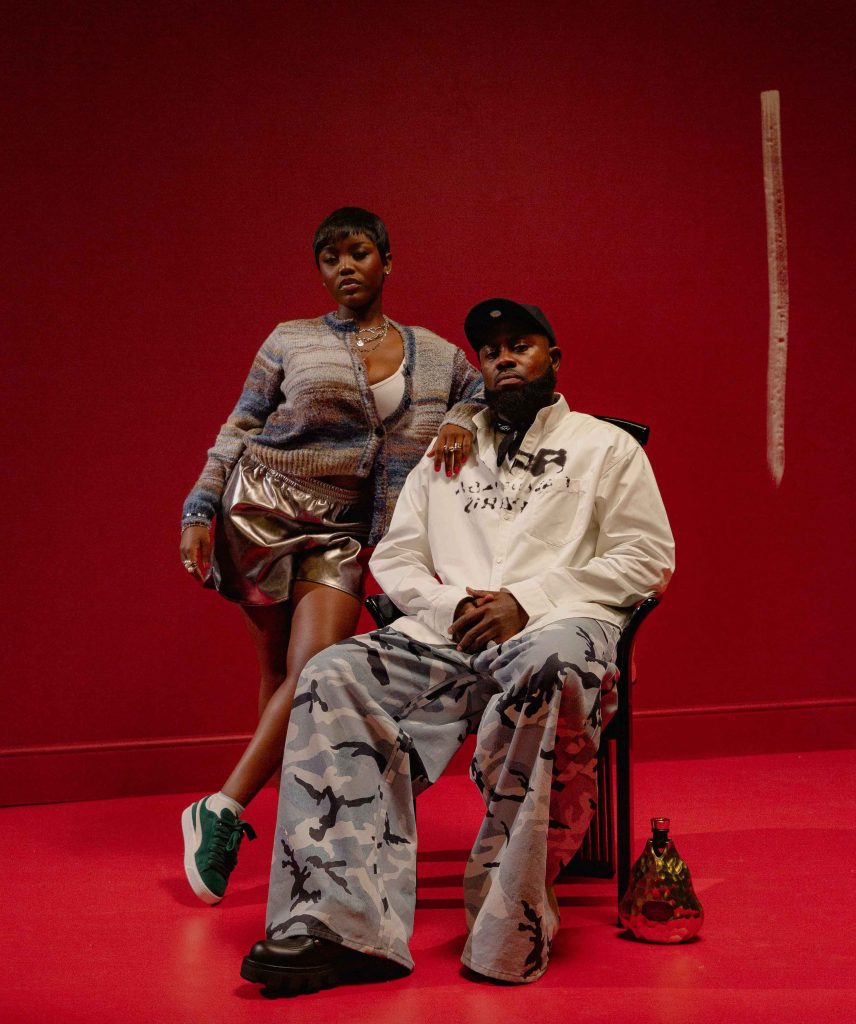When Gyakie and KJ Spio came together for “Days Pass By,” it was a fusion of two distinct creative identities shaped by culture, heritage, and a shared reverence for the emotional power of music.
Gyakie, the Ghanaian singer-songwriter with an innate ability to channel vulnerability and romance, and KJ Spio, a producer renowned for curating atmospheric, genre-fluid soundscapes, found a way to distil their individuality into a singular, magnetic track. It’s the kind of song that lingers, threading the personal and the universal into something greater than the sum of its parts.
For Gyakie, every lyric is a slow burn, a deliberate act of storytelling steeped in soul and authenticity. Her approach to “Days Pass By” mirrors her wider artistic ethos—crafting music that feels lived-in and timeless yet rooted in the specificity of her experiences. The track, born in the vibrant creative hubs of Ghana, showcases her devotion to weaving narratives that resonate deeply, offering listeners a piece of herself in every line.
KJ Spio, on the other hand, operates as a sonic architect, building expansive soundscapes designed to elevate emotion and create atmosphere. His ability to infuse the track with textures drawn from Ghanaian musical traditions—while maintaining a modern, polished edge—underscores his talent for bridging eras and blurring genre lines. His collaboration with Gyakie feels natural, almost inevitable, as if their contrasting strengths were destined to intersect. Together, they’ve built a song that’s as much a cultural homage as it is an exploration of connection and pride.
Beyond the music, their partnership reveals a quiet but potent commentary on the gendered realities of the music industry. Gyakie speaks with clarity and conviction about the extra weight female artists often bear, from battling assumptions to carving out space in male-dominated rooms. KJ Spio, too, is attuned to the nuances of these dynamics, and their collaboration feels like a blueprint for what creative partnerships could look like—equal parts respect, intentionality, and trust.
“Days Pass By” is a shimmering example of what happens when two artists allow their worlds to collide, challenging stereotypes and honouring their shared heritage while paving new roads for their art.
With Gyakie and KJ Spio joining forces on “Days Pass By,” we sat down with the duo to dive into their creative process. They shared insights into the influence of Ghana’s rich musical heritage on their artistry, the importance of storytelling in their music, and how their collaboration reflects broader conversations around gender and identity in the industry. From tackling stereotypes to fostering positive, creative spaces, Gyakie and KJ Spio offered a thoughtful glimpse into the heart of their partnership and their hopes for the future of music.
SheBOPS: How did each of you approach the storytelling in “Days Pass By”? What was it like merging your unique styles?
Gyakie: We both wanted to make a classic! We wanted to make a song that would touch the soul, and even though we have unique styles, it’s so amazing how we can merge it and make it perfect. The song was initially recorded in Ghana with Blaise beats. It took me a while to actually finish the lyrics to this song because I just felt it needed the best storyline. KJ wanted the same vision, and here we are with such an amazing record.
KJ Spio: Storytelling is very important to the creative process, so we both made sure there was a strong element of that in the song in a way that everyone can relate to the emotions of being proud of any relationship.
Ghana’s rich musical history is a foundation for both of you. How do you each integrate this heritage in ways that speak to your identities?
Gyakie: What’s interesting is the music always does the talking. It’s either in the visuals, the lyrics, the stage performance, the interviews or even the looks.
KJ Spio: We all draw from our rich musical history in every aspect. In this song, it’s the melodies and colour schemes you find in the music video.
As established artists, what advice would you give to younger artists who might feel pressured to stick to stereotypical themes in order to “make it”? How can they challenge these moulds while building their careers?
Gyakie: I believe in consistency, and I believe in staying true to oneself, being original and doing what makes you genuinely happy, you will always win.
When it comes to gender identity, what did you learn from each other’s experiences or perspectives during this collaboration? Was there something in each other’s approach to music that surprised you or changed the way you approached certain aspects of the song?
Gyakie: During this collaboration, I would say I saw his drive to get something he aims for. He is a lover of music, and when he envisions anything, he goes hard to get it done in the best way. Very admirable.
Gyakie, your music often highlights vulnerable, romantic themes, while KJ is known as a “mood enhancer” who’s selecting female artists to feature on tracks – how do you both think men and women approach these emotional narratives differently in the music industry if at all?
Gyakie: One of the beautiful things about music is how one can bring out what’s really going on within them. When it has to do with emotions, it’s interesting to see how both genders are able to speak on topics from different perspectives.
How does each of you see gender influencing your careers, and what have you observed about the challenges or expectations placed on men versus women in the industry?
Gyakie: One thing I’ve observed has to be how there are a lot more male artists than female artists, and because of that, I feel the enthusiasm for emerging female artists to get into the scene gets tricky sometimes. To be honest, I think male artists also have certain challenges they face, which probably isn’t talked about a lot. But all in all, being an artist alone comes with a lot of challenges, expectations & sacrifices.
Do you find that expectations differ for male versus female artists? If so, how do you think artists can navigate these differences together to create positive changes?
Gyakie: For male versus female artists, expectations do differ. Being a female artist comes with an extra challenge, and I believe spreading positivity and fighting insecurities (just to mention a few) could go a long way.
What qualities do you both think are essential for creating positive, creative spaces for both men and women in music?
Gyakie: Positivity, respect, unity and motivation are essential for creating positive, creative spaces for both men and women in music.
Are there specific stereotypes or assumptions you each encounter as male and female artists, and how does your work aim to challenge these perceptions?
Gyakie: I think there are some assumptions around what female artists can and cannot do because they are female, but I believe there should be no restrictions when it comes to being creative.
To close the conversation – in what ways do you both feel that men in the industry can better support female artists and vice versa?
Gyakie: Collaboration is a good support system not only for the artist but for the culture as well.







